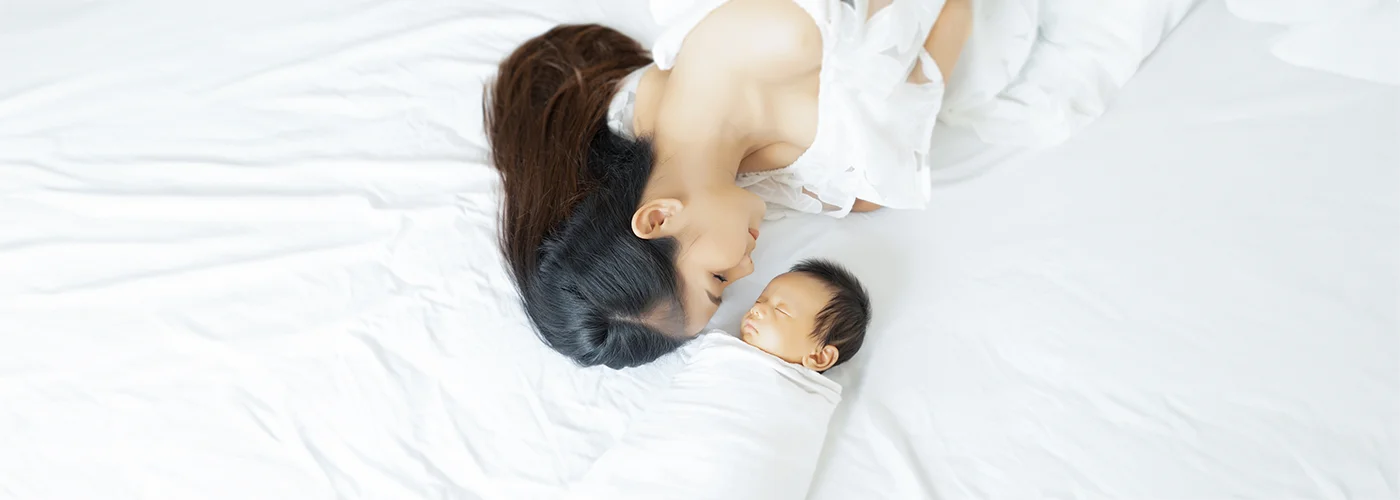Topics
Embracing motherhood is a joyful experience, yet it frequently brings various physical changes, such as postpartum hair loss. Noticing hair thinning a few weeks after your baby’s birth can be an unexpected and unpleasant development for some mothers.
Let us understand the reasons behind postpartum hair loss and find out what you can do to manage this condition effectively.
Onset and duration of postpartum hair loss
Postpartum hair loss, also known as postpartum alopecia, involves significant hair shedding in the months after childbirth. This condition, medically termed as Postpartum Telogen Effluvium (PPTE), usually begins around three to four months post-delivery. It is a common and temporary occurrence for many women.
Typically, postpartum hair loss lasts between six to 12 months after birth. However, the duration can vary, with some women experiencing it for a shorter period and others for longer. The extent and length of hair loss differ from person to person.
Nevertheless, it is important to understand that this shedding is a normal response to hormonal changes during the postpartum period, and hair generally regrows once hormone levels stabilise, usually within a year.
Symptoms and causes of postpartum hair loss
You may observe strands of hair on your pillow, clothes, or notice your shower drain getting clogged with hair. This increase in hair shedding is natural and occurs due to hormonal changes after pregnancy.
During pregnancy, higher levels of oestrogen prolong the hair growth phase, leading to thicker and shinier hair. However, oestrogen levels decrease after childbirth, causing the hair cycle to return to normal. This change can result in increased hair loss.
While some attribute hair loss to breastfeeding, it is important to note that breastfeeding itself does not directly cause hair loss. Postpartum hair loss is primarily influenced by hormonal shifts rather than breastfeeding. Nonetheless, the stress and nutritional demands associated with breastfeeding can indirectly contribute to hair loss if not adequately managed.
Steps to manage postpartum hair loss
Following are some steps that you can take to manage postpartum hair loss.
Ensure optimal nutrition
- Nutrition can significantly impacts hair health.
- Ensure your diet includes ample vitamins, minerals, proteins, biotin, Vitamin E, zinc, and iron, all of which support hair growth.
- Seek personalised dietary advice from your healthcare provider.
Stress management
- Learning relaxation techniques, finding ways to get adequate sleep, and practicing self-care can help you manage your stress, which in turn will positively impact hair health.
Good hair care
- Regularly massage your scalp to enhance blood circulation, thus promoting hair growth.
- Choose lightweight, moisturising conditioners to avoid weighing down your hair volume.
- Avoid excessive brushing or styling, which can stress fragile postpartum hair. Use a wide-tooth comb for detangling and be gentle when towel-drying.
- Experiment with different hairstyles that can disguise thinning areas or create a fuller appearance, such as shorter styles or layered cuts for added volume.
- Reduce the use of heated styling tools like straighteners and curling irons to prevent damage to delicate postpartum hair. Apply a heat-protectant product if necessary.
Medical treatment
- While postpartum hair loss is harmless, if you notice excessive or prolonged shedding, it is advisable to consult a dermatologist for tailored treatments and to rule out other underlying conditions such as thyroid disorder, that may contribute to hair loss.
Read more: Postpartum Care After Birth
Make an appointment at Gleneagles Hospitals
Experiencing hair loss after childbirth can pose a challenging journey for new mothers. It is crucial to understand that this phenomenon is both normal and temporary due to hormonal changes during pregnancy and postpartum.
Taking proactive steps such as maintaining a balanced diet, managing stress levels, and consulting healthcare professionals if concerns persist can help navigate this phase more effectively.
If you are worried about postpartum hair loss, get in touch with us to book an appointment today to consult with our Obstetrics and Gynaecology specialists, or find out more about our Obstetrics and Gynaecology Services at your nearest Gleneagles Hospital.








